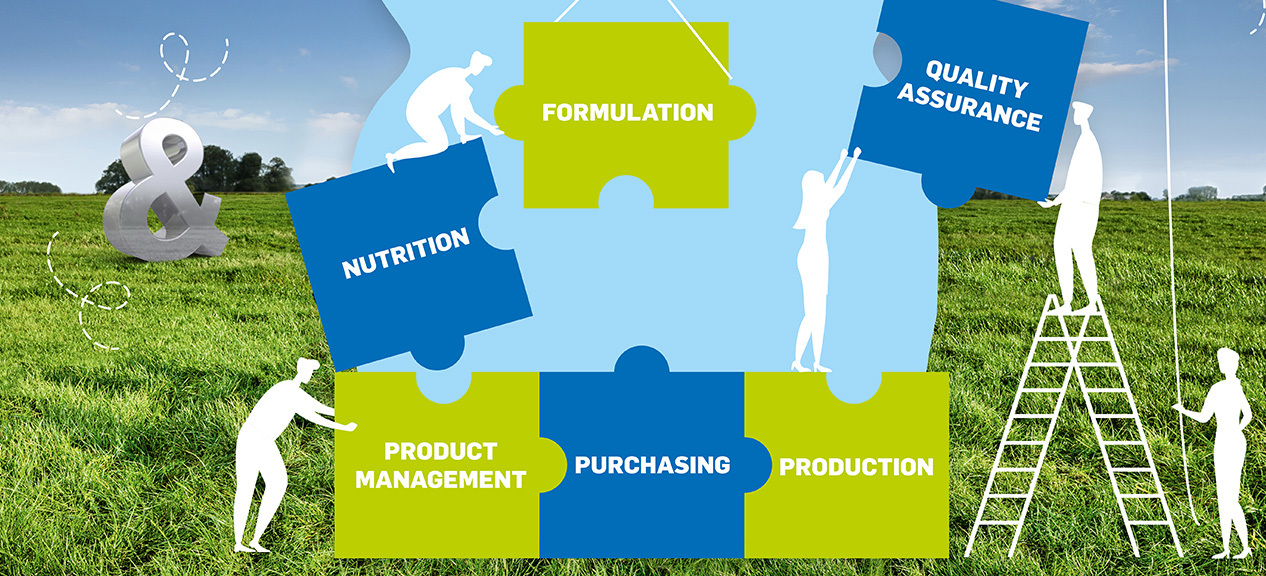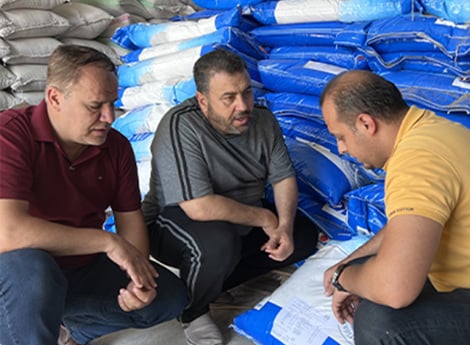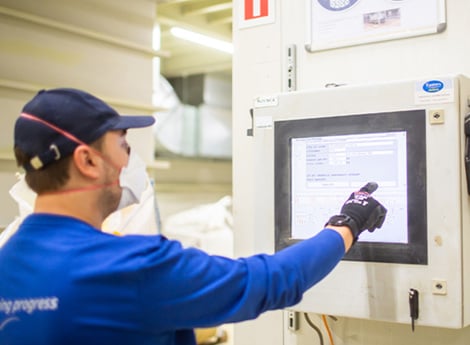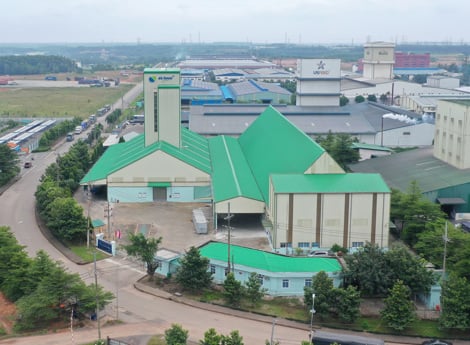Selecting the best performing technical feed additive
Technical additives are an indispensable component of premix animal nutrition, but selecting the ones that deliver maximum efficacy is far from easy. There’s a wide range on offer with a lot of different advice from suppliers. To identify the most effective technical additives, De Heus uses applied research. Wim Wensink, Category Manager Technical Additives Global Premix & Specialties explains how this rigorous, objective approach helps De Heus choose the most effective technical additives so customers can achieve their animal performance goals in the most cost-effective and sustainable way.

"A technical additive is a more or less unique feed additive that cannot be replaced easily by another product," says Wim. "Each one has different characteristics, but what they all have in common is that they increase the efficiency of animal protein production." For example, adding enzymes to premix leads to a higher digestibility and increased production efficiency. "Microbial phytase was introduced decades ago to improve the intake of phosphorous, promote animal growth and reduce phosphorous pollution," continues Wim. "Since then, other products have been developed that improve the digestibility of elements like zinc, copper and iron which are important for healthy animal development."
Other technical additives support animal health. "Probiotics and acid mixtures both have effects that improve health, but acids can also be used to prevent salmonella and protect feed from mould," explains Wim.
"Anti-oxidants are used to prevent quality loss in our products. Our suppliers also use them to stabilise products like colourants."With so many technical additives on offer, De Heus conducts a great deal of research to select the most appropriate ones, saving customers time.
Determining the practical value of different technical additives
Stability and bio-efficacy are two important criteria that are taken into account when making decisions about where and how to use each additive. "Establishing the characteristics of innovative, new technical additives is highly important for determining the right application for every practical situation," Wim says. "De Heus wants its customers to achieve the best results so they reach their revenue goals and that's the key to continuing business."
Feed enzymes are a key technical additive that De Heus has identified. "We recognise that there's a lot of value in these products," says Wim. "But we had to determine how to select and apply the best enzymes in a way that our customers will benefit." There's a great deal of scientific literature about enzymes' mode of action and their influence on animal performance. Enzyme suppliers also have a lot of knowledge and are constantly developing new products that optimise bio-efficacy, stability and methods of application, says Wim. "By organising supplier meetings, we can learn from them and they can learn from our practical experience with their products."
Shared farm knowledge & tailored premix compositions for the best performance
Discover how you can benefit from our Premix approach
Multidisciplinary analysis of technical additives
To evaluate the quality and impact of different technical additives like enzymes, De Heus uses a multi-species, cross-departmental team of internal experts. "To achieve the best results, the expert team consists of several disciplines; R&D, concept development, formulation, quality assurance, product management and purchasing," explains Wim. The fact that this is done within one company with a single goal in mind is unique.
During this expert field evaluation, the team assesses a technical additive from several different suppliers. For each source, the physiological mode of action is tested in different species. In addition, the stability and consistency of each technical additive is tested and the different costs of achieving optimum performance are compared.
The value of applied research
In vivo trials are a big part of this assessment process. "We have to be sure about the value of additives in the products we sell to our customers," says Wim. "Applied research on the farm not only inspires confidence and answers questions from our business units, it also helps us give the best advice to our customers and avoid mistakes that might affect animal performance."
Since the approval status of a specific additive can vary per region, De Heus' global footprint allows the company to test a new product in a country where its use is already authorised. "We can familiarise ourselves with a new additive in a very early phase and gain detailed knowledge about on-the-farm performance ahead of other companies," says Wim.
This multidisciplinary assessment results in thoroughly substantiated nutritional advice on how, when and where to use technical additives. "Based on the needs of a business unit's customers and specific demands we will make a proposal to our business units," Wim expands. "It's important that our local product managers agree on the selections we make, so they are also part of the decision making process. It helps them make the right choices and also saves time."
Discover how you can benefit from our premix approach?
We add value to your production process and offer professional advice regarding the feeding management of your animals.

Rutger Oudejans
Group Director Premixes, Specialties and Concentrates
Balanced purchasing strategy
Once a technical additive has been approved by the expert team and the business units, De Heus increases purchase volumes of the additive over time and works with the supplier to achieve a favourable cost base. This leads to lower overall costs which benefits both De Heus and its customers. "With all the different factors and commercial conditions per region, it's sometimes better to split our demand over several suppliers, especially when business units have specific demands in terms of stability or customer profile," adds Wim. "So we have to make strategic purchase decisions that balance the value of gaining knowledge and powering innovation, having the best performing product, the purchase conditions and generating volume with suppliers."
Developing strategic partnerships
During this process, Wim often sees the opportunity to establish a partnership that goes beyond transactional business. "We can develop strategic partnerships that generate new products, tools or services," he explains. This co-innovation process combines De Heus' own practical capabilities and the supplier's often more fundamentally based research competencies. "Working intensively with suppliers and combining the technical and commercial knowledge within De Heus ensures our customers have access to the most innovative solutions as well as the best performing premixes."
Premix Talks
This magazines provides a great overview of the efforts to design and produce premixes that deliver great-quality animal feed for healthy and productive animals. Enjoy reading









